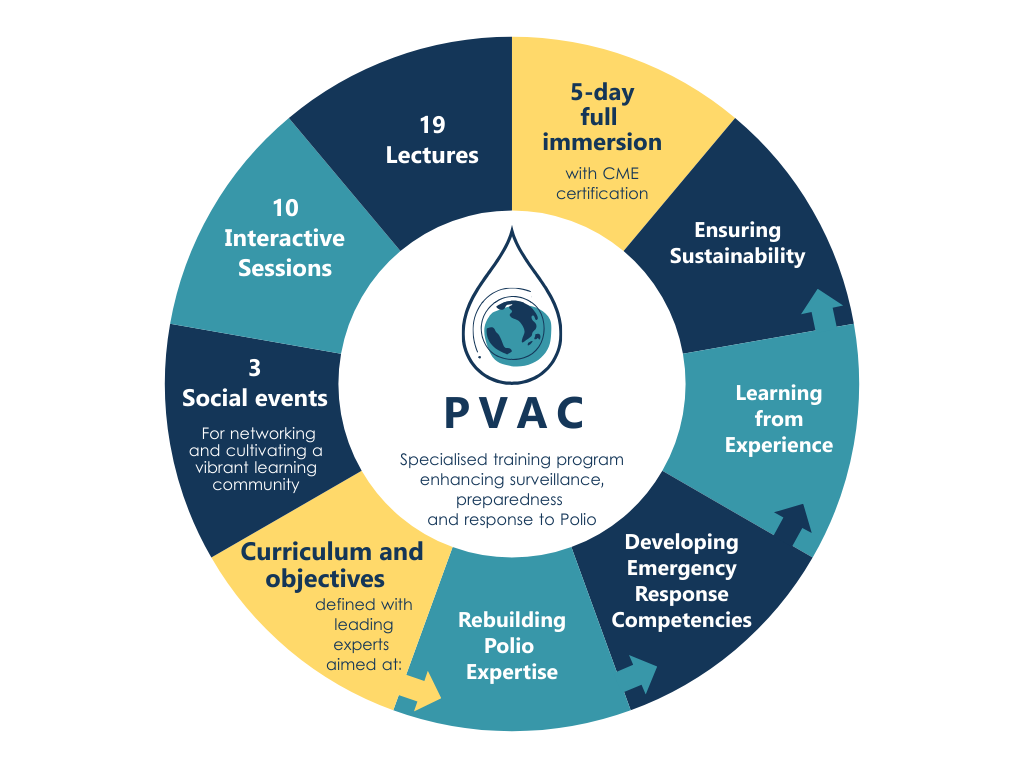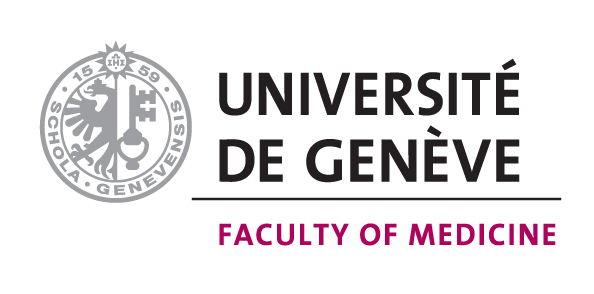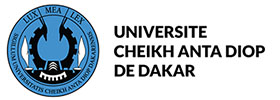About PVAC

Course Organizers
PVAC is co-organized by the University of Geneva, the Qatar University in Doha (for the session in English), and the Cheikh Anta Diop University in Dakar (for the session in French).

Founded in 1559, the University of Geneva (UNIGE) is internationally recognized and ranks among the world’s top 100 universities. Its Center of Vaccinology is a leading hub for education, research, and global collaboration in immunization, infectious disease prevention, and public health.
Among many activities, UNIGE organizes since more than 25 years, ADVAC, the Advanced Course of Vaccinology, and is also ensuring the secretariat of the ICAVT (International Collaboration on Advanced Vaccinology Training)—a global network promoting connection and cooperation among vaccinology training programs.

Qatar University is one of the leading institutions of academic and research excellence in the GCC region. It provides high quality undergraduate and graduate programs that prepare competent graduates, primed to shape the future of Qatar. The organization’s strong relationship with Qatari society is reflected in its community service efforts and in its vibrant research portfolio that addresses relevant local and regional challenges, advances national goals towards a knowledge-based economy, and contributes actively to the needs and aspirations of the society.

The Faculty of Medicine, Pharmacy, and Odonto-Stomatology (FMPOS) of Cheikh Anta Diop University of Dakar (UCAD) traces its roots to the Dakar School of Medicine, founded in 1918 during the colonial era, before being integrated in 1953 into the University of Dakar, which later became UCAD. After independence, it established itself as a key center for medical training in Francophone Africa, expanding its disciplines to include pharmacy (1969) and odonto-stomatology (1974). In the field of vaccinology, its historic partnership with the Institut Pasteur of Dakar (since 1923) has enabled major advances against tropical diseases such as yellow fever, Ebola, and COVID-19, notably through clinical trials. FMPOS also plays a central role in training African experts in vaccinology through the organization of Afro Advac Francophone course since 2024, and supports national and regional vaccination campaigns, thereby consolidating its status as a leading reference in research and public health in Africa.
Course Goal
PVAC is designed to strengthen decision-making skills and technical capacity in support of the global effort to eradicate polio. Tailored for early- and mid-career health professionals, the course offers in-depth training in vaccinology with a specific focus on polio.
The course covers essential topics such as immunology, epidemiology, vaccine development, immunization strategies, regulatory frameworks, risk and crisis communication, and the social, ethical, and financial dimensions of eradication programs. Using a 360° approach to learning, PVAC combines scientific updates, real-world case studies, scenario-based planning, and interactive sessions led by experts.
Participants will:
-
- Gain practical skills in emergency preparedness and outbreak response
- Critically assess eradication strategies and lessons learned
- Apply scenario-based planning tools
- Engage effectively with stakeholders and communities
- Join the PVAC Alumni Network to build long-term professional collaborations
The course fosters cross-disciplinary understanding, expanding participants’ expertise beyond their immediate field, encouraging global thinking, and introducing new technologies and approaches. It empowers professionals to contribute meaningfully to the polio eradication mission—both in the field and at the policy level.
Course format and structure
PVAC is a 5-day in-person course, designed to provide a dynamic and immersive learning experience, emphasizing active participation and practical application. This engaging format promotes networking opportunities and facilitates deeper interaction with the course material.
Course components include:
-
- 19 Lectures: Each lecture consists of a 25-minute expert presentation followed by a 20-minute discussion.
- 8 Interactive Group Work Sessions : Participants will be divided into small groups; each group will be guided by an expert facilitator. These sessions are designed to apply theoretical knowledge through case studies, scenario-based simulations, and practical exercises.
- 2 Expert Panels: Panels will feature 3 to 4 leading experts who will explore key issues through focused moderated talk (15–30 minutes), followed by an open discussion with participants.
- 1 Special Talk: The course will include a special inspirational or thematic talk from a guest speaker.
- Daily Wrap-Up and Q&A: Each day will conclude with a collective 15–20-minute Q&A session involving all lecturers and facilitators, allowing participants to revisit and clarify key concepts as necessary.
- 3 Social Events: Social events will be scheduled throughout the course to foster peer learning, build cross-regional connections, and support the formation of a strong PVAC alumni network.
Objectives for each session
DAY 1 – POLIO: HISTORY, CLINIC, VIROLOGY, IMMUNOLOGY & VACCINES
The purpose of this session is to explore the historical, epidemiological, virological, clinical, and immunological aspects of polio, leading to an understanding of global eradication strategies and diagnostic interpretation. Real-world examples and interactive lab interpretation exercises are used to reinforce core concepts.
- LECTURE 1 – History of polio and its eradication
Explore the origins of poliovirus, global eradication efforts, key milestones, and remaining challenges in endemic areas.
- LECTURE 2 – Epidemiology of WPV and cVDPVs
Understand the global burden, vaccine impact, and epidemiological trends of wild and circulating vaccine-derived polioviruses.
- LECTURE 3 – Virology of polio and enteroviruses
Review poliovirus structure, classification, genetic features, and virological distinctions from other enteroviruses.
- LECTURE 4 – Clinical manifestations of polio and enterovirus infections
Learn about transmission, clinical spectrum, outcomes, and long-term impacts of poliovirus infections.
- LECTURE 5 – Immunology
Understand immune responses to polio, vaccine-driven immunity, and considerations for vulnerable populations.
- LECTURE 6 – Polio vaccines
Compare IPV and OPVs, immunization strategies, emerging vaccines, and vaccination in special populations.
- WORK GROUP SESSION 1 – Interpretating lab results
Practice analyzing lab and genetic data to support field investigations and outbreak response.
DAY 2 – POLIO OUTBREAK: FROM DETECTION TO RESPONSE
The purpose of this session is to provide a comprehensive understanding of Global Polio Eradication Initiative (GPEI) Standard Operating Procedures (SOPs) for outbreak preparedness and response, including surveillance, risk assessment, vaccine logistics, budgeting, and campaign monitoring. Practical work group sessions are included to build capacity for real-time decision-making and implementation.
- LECTURE 7 – GPEI SOPs: surveillance, detection, notification and investigation
Understand core surveillance systems (AFP, environmental), diagnostic challenges, and the role of iVDPVs in surveillance and investigation.
- LECTURE 8 – GPEI SOPs: risk assessment and response
Learn about outbreak risks and localized response plans, and microplanning tools.
- LECTURE 9 – GPEI SOPs: Polio vaccines logistics
Explore vaccine storage, distribution, and reverse logistics, including safe handling of materials and waste.
- WORK GROUP SESSION 2 – Preparing a risk assessment and a response plan
Apply GPEI frameworks to develop a polio outbreak response plan and its assessment
- LECTURE 10 – GPEI SOPs: budget, financing, HR for the response
Understand financial planning, budgeting, e-payment systems, and HR surge strategies for effective outbreak response.
- WORK GROUP SESSION 3 – Preparing the budget and the HR surge for the response
Design an outbreak response budget and staffing plan, addressing logistical and financial challenges.
- LECTURE 11 – Monitoring and evaluation of the quality of the response
Examine how to track and evaluate outbreak response quality using indicators and assessment frameworks.
- WORK GROUP SESSION 4 – Outbreak response campaigns: management, monitoring & evaluation
Simulate campaign coordination, assess performance using data, and interpret assessment results for continuous improvement.
DAY 3 – STRATEGIC AND SOCIAL DIMENSIONS OF POLIO OUTBREAK RESPONSE
The purpose of this session is to examine the complex social, behavioral, and operational factors influencing the success of polio outbreak response. Through case studies, group work, and stakeholder discussions, participants will identify lessons learned, explore strategies for working in challenging contexts, and improve their ability to engage communities and manage cross-sectoral partnerships.
- LECTURE 12 – Engagement of communities and individuals in Polio surveillance and response (including addressing vaccine hesitancy)
Learn about SBCC, gender dynamics, and culturally sensitive approaches for surveillance and vaccine acceptance.
- WORK GROUP SESSION 5 – Engaging communities and individuals
Design context-specific community engagement strategies to address vaccine hesitancy and build public trust.
- LECTURE 13 – Polio surveillance and response in insecure areas and conflict settings
Explore the challenges of operating in fragile environments and strategies for maintaining access and response activities.
- WORK GROUP SESSION 6 – Polio surveillance and response in insecure areas and conflict settings
Simulate planning and coordination of response strategies in high-risk, insecure areas using adaptive tools and partner engagement.
- PANEL 1 – Lessons learned: determinants and challenges of a Polio outbreak response
DAY 4 – POLIO ERADICATION, SUSTAINABILITY & INNOVATION, PRESENT AND FUTURE STRATEGY
The purpose of this session is to explore the global architecture and strategic direction of the Global Polio Eradication Initiative, including integration with routine immunization, innovations in outbreak response, and long-term planning. Participants will reflect on the political, technical, and financial dimensions of eradication and critically engage in a forward-looking debate on the future of the initiative.
- LECTURE 14 – The Global Polio Eradication Initiative (GPEI) and it’s 2022-2026 strategy
Explore the structure, partnerships, governance, and funding mechanisms that drive global polio eradication efforts. Review the current GPEI strategy, its goals, progress, challenges, and alignment with broader global health priorities. - LECTURE 15 – Routine immunization, integration, and polio transition
Understand how routine immunization supports eradication and how polio resources can be integrated or transitioned. - LECTURE 16 – Polio containment
Learn about global containment standards, national responsibilities, and strategies to manage breach risks. - LECTURE 17 – Political engagement and resource mobilization at global, regional and country levels
Learn about strategies and challenges in securing political will and resources for polio eradication at all levels. - WORK GROUP SESSION 7 – Political engagement and resource mobilization for polio at the country levels
Learn to develop an advocacy and resource mobilization plan, and simulate a policy dialogue to support national polio goals.
- LECTURE 18 – Innovations in Polio
Discover how new technologies are transforming polio surveillance and response, and how to scale innovation adoption. - PANEL 2 – Polio eradication: is it time to rethink our eradication objective?
Debate the future of global eradication vs. control strategies and their public health implications.
DAY 5 – ETHICS, COMMUNICATION & HUMAN STORIES IN POLIO ERADICATION
The purpose of this session is to explore the ethical dimensions of immunization policy and practice, and to build capacity in effective communication during public health crises. The day concludes with a powerful personal perspective to ground the program in lived experience and human impact.
- LECTURE 19 – Ethics and Polio
Examine ethical dilemmas in immunization, from access and mandates to patient refusal, transparency, and safeguarding in campaigns.
- WORK GROUP SESSION 8 – Crisis communication
Build and deliver key messages during polio-related crises, simulating media engagement and community response.
- SPECIAL TALK – Inspirational Testimony
Social events
Day 1 – Welcome Reception: An opportunity to meet fellow participants, speakers, and organizers in a relaxed and friendly atmosphere.
Day 2 – Informal Dinner: A casual evening to continue conversations over a shared meal.
Day 3 – Gala Dinner: A formal closing event, before day 5, celebrating the highlights of the program in an elegant setting.
Daily coffee breaks and lunches are also provided, offering valuable opportunities for informal networking throughout the course.
Continued Medical Education accreditation
Continuing Medical Education (CME) credits are awarded upon successful completion of the 5-day program.
- The PVAC Doha 2025 course has been accredited by the European Accreditation Council for Continuing Medical Education (EACCME®) with a max of 30 European CME credits (ECMEC®s) upon full attendance to the course. EACCME accreditation Reference – LEE/2025/01856.
- PVAC is also an Accredited group learning activity (Category 1) as defined by the Qatar Ministry of Public Health’s Department of Healthcare Professions (DHP) – Accreditation Section (AS) and is approved for a maximum number of 31.25 Hours. (PVAC Activity Accreditation Code: AGI-03-P200)
